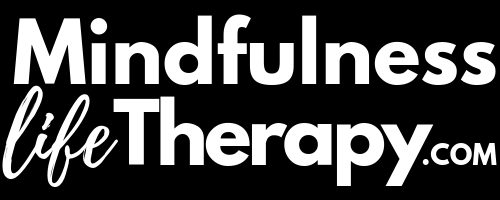FAQs
Frequently Asked Questions
Online therapy, also known as telepsychology, telemental health, internet therapy, or online-counseling, is a growing trend in the behavioural health world. Through online therapy, mental health providers are able to work with clients using therapeutic interventions over the internet. Online therapy can be offered via video, telephone, and texting. This new therapy platform is becoming more popular because it offers the same benefits of traditional therapy while adding in the convenience factor.
There are many different approaches to therapy. A therapist typically has one style they like to utilize throughout their practice. During your first conversation, it can be helpful to ask your therapist what their style of therapy is and decide if that style will work for you. A good fit is easier to achieve if you know a little more about what might work best for your situation. Just like there are specialties in medicine for treating certain kinds of physical problems, there are specialties in therapy for resolving certain kinds of life problems. If the style doesn’t fit quite right, most therapists will be happy to help you find someone who does. Here are some of the more common styles you’ll see.
Person-centered therapy is almost exactly what it sounds like. The therapist’s goal is to help you find your own direction and solutions to your problems throughout therapy. The relationship between you and your therapist is key to this process and is actually used to help you heal and grow. Here, your therapist will work as a guide or a coach, and you will face your challenges as a team. Through a process of listening, empathy, and feedback, a person-centered therapist puts you in the driver’s seat. By meeting you as an equal, your therapist helps you regain autonomy and control and helps you to overcome your problems. You have choices and together with your therapist, you can guide the direction of your own therapy.
Online therapy has proven to be very effective, especially video therapy. The benefits of online therapy are well researched and documented. Of all the telemental health options available, video therapy is generally very secure and proven to be the most effective.
There are many benefits to online therapy which explains why this is a rapidly growing platform among consumers. When it comes to therapy it is easy to come up with reasons to not to seek help. The most common reasons include not having enough time, the stigma associated with therapy, the cost to see a therapist, and not being able to find the right therapist. Online therapy solves these problems and makes accessing a therapist as easy as logging onto your computer or phone. The convenience factor is huge when it comes to online therapy.
CBT, or cognitive behavioral therapy, is a very common form of therapy used to treat a broad range of concerns. Cognitive behavioral therapy can be beneficial with many challenges such as depression, anxiety, substance abuse, and eating disorders as well as problems like tough relationships, bad sleep, and loss. CBT is a problem-focused therapy, which means it looks at the specific problem that you’re facing and then helps find and use new coping skills to help with that problem. Research has shown that CBT can lead to significant improvements in coping and quality of life and can lead to change in your life.
Gestalt therapy was developed by Fritz and Laura Perls in the 1940’s. The primary aim of this form of therapy is to help clients become more aware of what they are experiencing in the present moment. Through this heightened self-awareness, clients gain insight into how their habitual ways of thinking and acting interfere with their personal growth and learn what adjustments they can make to achieve their full potential.
Online therapy is very legitimate. Online therapists are held to the same standard as any other therapy professional. The same licensures, privacy rules, and ethics all apply whether therapy is provided in an office, over the phone, or through video conference. Therapists should have their state-issued credentials readily available. If not, it’s usually better to move on to someone else.
Some of the conditions treated with Gestalt therapy are:
- depression
- anxiety
- post-traumatic stress
- loneliness
- bereavement
- sexual problems
- personality disorders
- adjustment disorders
- psychosomatic issues
- addiction
Of course, the benefits of therapy are not limited to persons who are experiencing mental health problems. It is also beneficial for anyone who wishes to gain a deeper understanding of himself or to develop his hidden potential.
